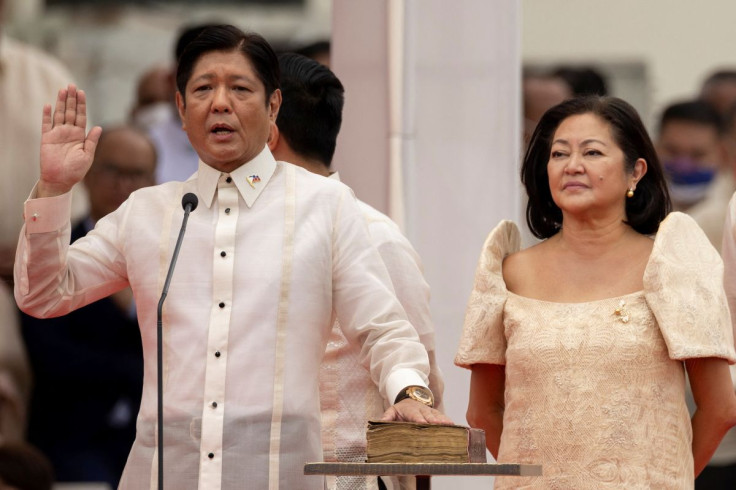Philippines' Marcos Vows Farms And Tax Overhauls In Ambitious Address

Philippine President Ferdinand Marcos Jr on Monday promised tax reforms, a faster infrastructure upgrade and to turn his country into an investment destination, while pledging to transform agriculture to drive growth and reduce reliance on food imports.
In an ambitious policy speech to Congress screened live on television, Marcos, the son of the strongman overthrown in a 1986 revolt, said he would create jobs and support growth by improving tourism and by modernising agriculture, using scientific methods and an "infusion of fresh and new blood".
Marcos said the global food price crisis had shown how the Philippines, a major rice importer, was vulnerable to sustained price rises and insufficient supply, and would need to become more resilient to climate change.
Among the measures he would introduce was suspension of farmers' debts to allow them to boost output.
"A moratorium will give the farmers the ability to channel their resources in developing their farms, maximising their capacity to produce, and propel the growth of our economy," he said.
In a speech that lasted 1 hour, 18 minutes, Marcos promised to expedite long overdue infrastructure works, including airports and railways, and to embrace renewable energy and be tough on firms that damaged the environment.
He said his government would reexamine nuclear power, a plan started by his late father and namesake in the 1970s.
Marcos Jr also promised the Philippines, a U.S. defence ally that has recently become closer to China, would remain independent in its foreign policy.
In a reference to the Philippines' historic run-ins with Beijing in the South China Sea, he said he would "not preside over any process that will abandon even a square inch of territory", drawing lengthy applause from Congress.
His administration would implement solid fiscal policy management and was targeting 6.5% to 7.5% gross domestic product growth this year, he said. Before the pandemic, the Philippines was among Asia's fastest growing economies.
It would also improve education, healthcare and working conditions for doctors and nurses and ensure a better water and power supply across the nation of more than 7,600 islands, he said.
"The state of the nation is sound," Marcos said.
© Copyright Thomson Reuters 2024. All rights reserved.











